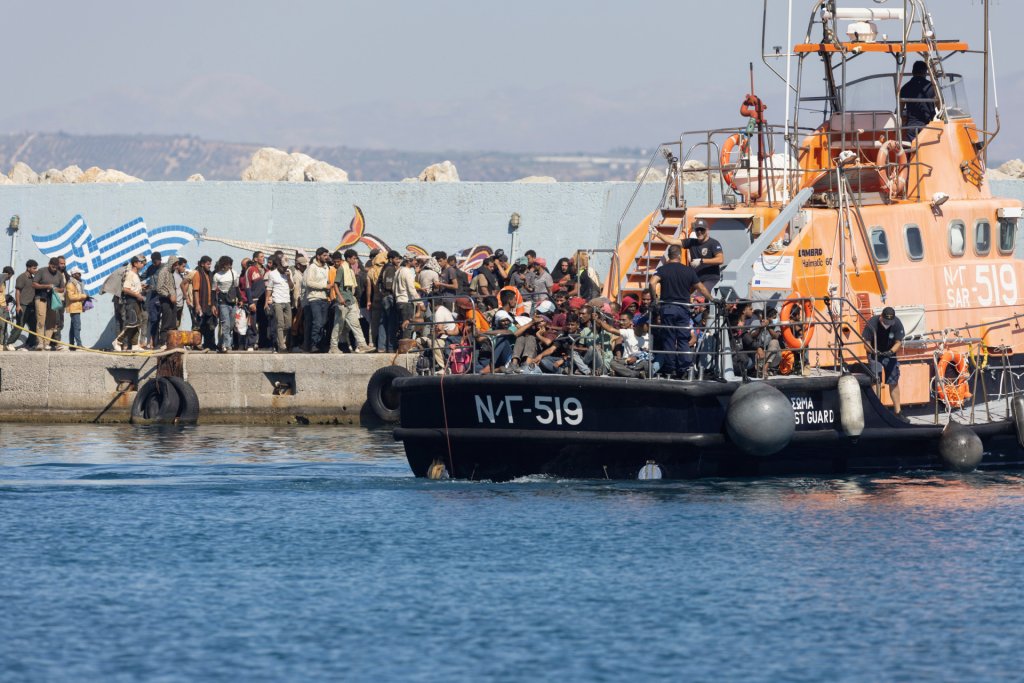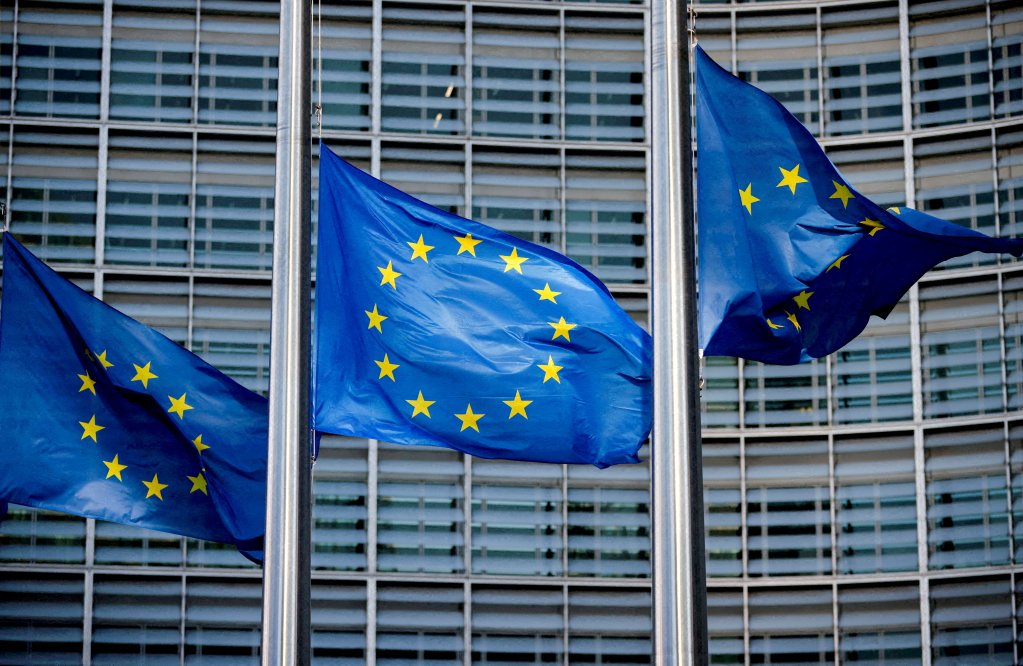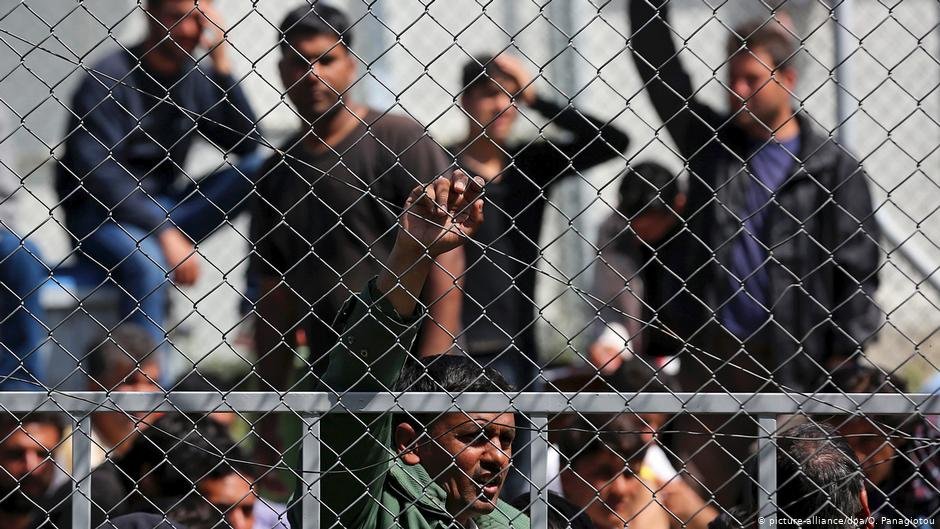A riot in a migrant detention-center in northern Greece comes as the government enforces sweeping new penalties for rejected asylum seekers, and as Europe prepares for its next phase of migration reform.
A riot at a migrant detention center in northern Greece on Wednesday evening (November 12) left two police officers injured and resulted in 30 arrests, stated Greek authorities. The unrest has also refocused attention on Greek migration policy, which is becoming one of the strictest in Europe.
Police said the incident broke out at a center holding around 750 migrants of various nationalities. During the clashes, one officer was struck by a rock while another was bitten on the hand.
The disturbance came as the Greek authorities implement sweeping laws that criminalize irregular stay, mandate detention for rejected asylum seekers, and impose prison sentences of two to five years for those who enter or remain in the country without authorization.
Read AlsoGreece: Further cuts to asylum seeker benefits
Clampdown after rising arrivals
The riot occurred one day after a boat traveling from Libya sank near Crete, leaving three migrants dead and 55 rescued. Two Sudanese survivors were arrested on suspicion of smuggling, stated a report from the Hellenic Coast Guard.
Arrivals from Libya to Crete and the neighboring small island of Gavdos have risen this year, prompting the government over the summer to temporarily suspend asylum processing for migrants arriving via North Africa on this route.

Although southern routes from North Africa remain active, Migration Minister Thanos Plevris said on Wednesday that overall migrant arrivals to Greece have declined compared with last year. Still, he has repeatedly defended the government’s stricter policies, asserting in September that "the rights of Greeks who want to protect their country outweigh the rights of someone whose asylum was rejected."
The conservative government of Prime Minister Kyriakos Mitsotakis has, since 2019, expanded border fencing along Greece’s northern frontier and strengthened sea patrols in the Aegean. However, human rights organizations, accuse authorities in Athens of summary pushbacks at land and sea borders -- allegations the government denies. The EU border agency Frontex has said it is reviewing a dozen alleged rights violations involving Greek authorities this year.
Read AlsoGreece: Three migrants die in shipwreck off Gavdos
New European context
The incident comes as the European Union prepares to implement its new Pact on Migration and Asylum, which is due to enter into force mid-2026. Under a "solidarity pool" mechanism, Greece, Cyprus, Spain and Italy will be eligible for additional support due to what the European Commission describes as "disproportionate" levels of arrivals over the past year.

While irregular border crossings into the EU fell by 35 percent between July 2024 and June 2025, the Commission noted that several countries -- including Greece -- remain under significant migratory pressure. Member states will now choose whether to assist frontline countries by relocating migrants, providing financial contributions, or offering other operational support. As part of broader border-security measures, Brussels is also preparing a 250 million euro tender for drones and anti-drone systems, aimed primarily at countries facing hybrid threats.
Read AlsoEU draws the lines on upcoming migration 'solidarity pool' and how it will be implemented
Criminalization of migration
In September 2025, the Greek parliament approved legislation that effectively criminalizes irregular stay. Under the new provisions:
- Migrants whose asylum applications are rejected face mandatory detention of up to 24 months
- Remaining in the country without authorization becomes a felony, punishable by two to five years in prison and fines of up to 10,000 euros
- Rejected asylum seekers lose the possibility of obtaining a visa after seven years of residence
- Returning to Greece without documentation after removal becomes a criminal offense.
"The message is clear," Plevris said in August 2025. "If your asylum application is rejected, you have two choices: either you go home, or you go to prison."

This policy direction has raised concerns among rights groups and international organizations. The UN High Commissioner for Refugees (UNHCR) warned that the measures could penalize people who may still require international protection, urging Greece to adopt fast-track procedures to distinguish quickly between refugees and non-refugees.
Read Also'Almost impossible to stop'?: Is the use of speedboats changing migration towards Europe?
Revocation of refugee status
Adding to the tightening framework, a newly announced policy allows Greek authorities to revoke refugee status from recognized refugees who return to their home countries -- even briefly. The October 30 directive authorizes investigations into travel patterns and permits the immediate suspension or withdrawal of protection if officials determine that a refugee is no longer at risk in their country of origin.
An International Organization for Migration (IOM) official, previously told InfoMigrants that some refugees do return to conflict-free areas within their home countries but described the new measure as part of a broader effort "to penalize foreigners even more."
Between January and September 2025, more than 30,000 migrants arrived in Greece by sea, with 44 percent landing in Crete -- a dramatic shift from the traditional hotspots of Lesbos and Samos. Although total arrivals remain below historic peaks, the government portrays the current numbers as a national security concern that justifies stricter laws and expanded detention.
The government is further pushing rhetoric on deportation. "According to the new law we passed, for those without a refugee profile, the process is simple: swift asylum examination, rejection, deportation. Until then, a detention regime. This is their daily reality, and now that they realize it, they react. The commission of criminal offenses within the facilities simply worsens their position and accelerates the process. Zero tolerance for illegal immigration," Plevris wrote on X Thursday (November 13).
Greece says it has already returned hundreds of irregular migrants since suspending asylum processing for arrivals from North Africa and is planning additional removal flights to Pakistan, Bangladesh, and Egypt.
Read AlsoGreek government wants to remove refugee status to all who travel back to their home country
A deepening divide
Wednesday’s riot highlights the mounting tensions resulting from Greece’s highly securitized approach to migration -- an approach now intertwined with EU-wide reforms and regional geopolitical dynamics.
With new European solidarity mechanisms on the horizon and domestic legislation hardest on rejected asylum seekers, the country sits at a crossroads between deterrence and humanitarian obligations.
As Greece moves deeper into what officials call a "strict but fair" migration era, rights groups warn that the human cost -- inside detention centers, at borders, and at sea -- is likely to rise.
Read AlsoRising death toll in Aegean:More than 20 dead in two separate incidents off Greece and Turkey
With AP
